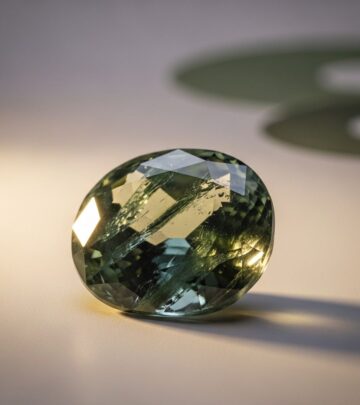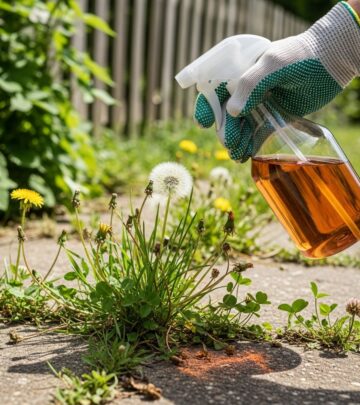Best Dry Cleaner: Complete Guide To Selecting The Right Service
Discover top experts who refresh your wardrobe with exceptional care and quality results.

Image: HearthJunction Design Team
How to Find the Best Dry Cleaner for Your Garments
Entrusting your valuable clothing to a dry cleaner requires careful consideration. Not all dry cleaners offer the same quality of service, and choosing the wrong one could potentially damage your favorite garments. Whether you have designer clothing, delicate fabrics, or simply want to ensure your regular wardrobe is well-maintained, finding a reliable dry cleaner is essential for extending the life of your clothing investments.
This comprehensive guide will walk you through everything you need to know about selecting the best dry cleaner for your specific needs, from understanding the dry cleaning process to evaluating a cleaner’s expertise and environmental practices.
Understanding Dry Cleaning Basics
Before selecting a dry cleaner, it’s helpful to understand what dry cleaning actually entails. Despite its name, dry cleaning is not actually dry. Instead, it uses chemical solvents rather than water to clean garments. This process is particularly beneficial for delicate fabrics that could be damaged by traditional washing methods.
Dry cleaning works by using solvents that can dissolve oils and stains without causing fabrics to shrink, stretch, or lose their shape. The process also helps preserve colors and prevents bleeding that might occur with water washing. Most importantly, it can safely clean garments with special constructions, linings, or embellishments that would be ruined in a regular washing machine.
Evaluating a Dry Cleaner’s Quality
Finding the right dry cleaner involves more than just dropping off your clothes at the nearest location. Here are several crucial factors to consider when evaluating potential dry cleaners:
Drop in and Ask Questions
One of the most effective ways to assess a dry cleaner is to visit the establishment in person. This gives you the opportunity to observe the facility and interact with the staff. During your visit, take note of the following:
- Is the store clean, organized, and well-maintained?
- Are the staff members knowledgeable and willing to answer your questions?
- Do they inspect garments thoroughly before accepting them?
- Are they transparent about their pricing and processes?
Don’t hesitate to ask specific questions about how they handle different fabrics or stains. A reputable dry cleaner should be able to explain their processes and make recommendations based on your garment’s needs.
Inquire About Experience and Qualifications
Experience matters significantly in the dry cleaning industry. Ask how long the business has been operating and whether their staff receives specialized training. Many quality dry cleaners have certifications from industry organizations or participate in continuing education to stay updated on the latest techniques and technologies.
If you have particularly valuable or delicate items, inquire whether the cleaner has experience with similar garments. Some cleaners specialize in wedding dresses, vintage clothing, or designer pieces, so finding one with relevant expertise can make a significant difference in the outcome.
Examine Finished Work
If possible, look at garments that have been cleaned and are ready for pickup. Check for these quality indicators:
- Garments should appear clean without lingering stains or odors
- Buttons, embellishments, and trim should be intact
- Pressing and finishing should be neat without wrinkles or shine marks
- Clothing should be properly hung or folded
You can also ask if they offer any guarantees or satisfaction policies, which can indicate their confidence in their work.
Seek Specialty Cleaners When Necessary
While many dry cleaners can handle a wide range of garments, some items require specialized care. In these cases, it’s worth seeking out cleaners with specific expertise:
Wedding Gown Preservation
Wedding dresses often feature delicate fabrics, intricate beadwork, and unique construction that require specialized cleaning and preservation techniques. Look for dry cleaners that specifically advertise wedding gown services and ask about their preservation methods, including how they protect the gown from yellowing and damage over time.
Vintage and Heirloom Clothing
Older garments may have fragile fabrics or construction methods that require gentle handling. Cleaners experienced with vintage clothing understand how to clean these items while preserving their historical integrity and preventing damage that could decrease their value.
Designer and Luxury Items
High-end clothing often uses premium fabrics and construction techniques that benefit from specialized knowledge. Some dry cleaners have specific experience with particular designer brands and understand how to properly care for these investments.
Leather, Suede, and Fur
These materials require completely different cleaning methods than typical fabrics. Look for cleaners that specifically advertise expertise in these materials, as improper cleaning can cause permanent damage.
Determine Which Dry-Cleaning Solvents Are Used
The type of solvent a dry cleaner uses significantly impacts both the quality of cleaning and potential environmental and health considerations. Here are the main types of solvents currently used in the industry:
Perchloroethylene (Perc)
Traditionally, perchloroethylene (commonly known as perc) has been the most widely used dry cleaning solvent. It’s effective at removing oil-based stains and doesn’t damage most fabrics. However, perc has raised environmental and health concerns, leading many cleaners to transition to alternative solvents.
Hydrocarbon Solvents
These petroleum-based solvents are gentler than perc and pose fewer environmental concerns, though they’re not completely free of environmental impact. They may not clean as aggressively as perc but are often suitable for delicate fabrics.
Green Alternatives
Several newer, more environmentally friendly options have emerged in recent years:
- Liquid Carbon Dioxide: Uses pressurized CO₂ along with other cleaning agents
- Wet Cleaning: A water-based system that uses specialized detergents and careful temperature control
- Silicone-Based Solvents: Often marketed under names like GreenEarth, these are generally considered less harmful to the environment
Ask your cleaner about which solvents they use and why they’ve chosen that particular method. Some cleaners may use different solvents for different types of garments based on their specific needs.
Understanding Care Labels
Clothing care labels provide important guidance about how garments should be cleaned. Different symbols indicate whether an item should be dry-cleaned and which solvents are appropriate. Here’s a quick reference guide for the American care labeling system:
- Empty circle: The item should be dry-cleaned
- Circle with “X”: The item should not be dry-cleaned
- Circle with “A”: The item is dry-clean-only and any solvent can be used
- Circle with “F”: The item is dry-clean-only and a petroleum solvent must be used
- Circle with “P”: Professional dry cleaning is recommended in any solvent except trichloroethylene
A quality dry cleaner will be familiar with these symbols and follow the recommendations to avoid damaging your garments.
Consider Eco-Friendly Practices
As environmental awareness grows, many consumers are prioritizing eco-friendly dry cleaning options. When evaluating a cleaner’s environmental practices, consider these factors:
Solvent Choices
As mentioned earlier, some solvents have a much lower environmental impact than others. Wet cleaning, liquid CO₂, and silicone-based methods generally have fewer environmental concerns than traditional perc cleaning.
Energy Efficiency
Ask whether the cleaner has invested in energy-efficient equipment or implements practices to reduce their energy consumption.
Recycling and Waste Reduction
Inquire about whether they recycle hangers, use biodegradable garment bags, or have other waste reduction initiatives in place.
Certification
Some cleaners have obtained third-party environmental certifications that verify their green practices. These can provide additional assurance of their environmental commitment.
Evaluate Customer Service and Convenience
Beyond the technical aspects of cleaning, customer service significantly impacts your dry cleaning experience:
Turnaround Time
Consider how quickly the cleaner can process your garments, especially if you frequently need items cleaned on short notice. Some cleaners offer express services for an additional fee.
Pick-Up and Delivery
Many modern dry cleaners offer convenient pick-up and delivery services, either on a regular schedule or on-demand through mobile apps.
Hours of Operation
Check whether their hours align with your schedule, particularly if you need to drop off or pick up items outside of typical business hours.
Payment Options
Consider whether they offer convenient payment methods, including digital options or the ability to keep a credit card on file.
Communication
Quality cleaners will communicate proactively about any issues they encounter with your garments and seek your input on how to proceed with challenging stains or special items.
Understand Pricing and Value
While price shouldn’t be the only factor in choosing a dry cleaner, understanding their pricing structure helps you evaluate the value they provide:
Transparent Pricing
Reputable cleaners clearly display their prices for standard items and explain any additional charges for special services like stain removal or handling delicate fabrics.
Evaluating Cost vs. Quality
The least expensive option isn’t always the best value. Consider the level of service, attention to detail, and quality of results when comparing prices between cleaners.
Loyalty Programs
Some cleaners offer discount programs for regular customers, which can provide better value if you frequently use dry cleaning services.
Frequently Asked Questions (FAQs)
How often should I dry clean my garments?
The frequency depends on the garment type, fabric, and wear. Suits and formal wear typically need cleaning after 3-5 wears, while sweaters and other knitwear may only need cleaning a few times per season. Over-cleaning can accelerate wear, so follow care label recommendations and only clean when necessary.
Can all stains be removed by dry cleaning?
No, not all stains can be completely removed through dry cleaning. The success depends on the type of stain, the fabric, and how long the stain has set. Always point out stains when dropping off garments and provide information about what caused them if possible.
Is it safe to dry clean all items labeled “dry clean only”?
Yes, items labeled “dry clean only” should be safe to dry clean. However, some delicate items may require special handling or alternative solvents, so always inform your cleaner about particularly valuable or delicate garments.
How can I minimize damage to my clothes from dry cleaning?
To minimize potential damage: clean garments only when necessary, point out stains and areas of concern, remove items from plastic bags promptly after picking them up, and choose a cleaner that uses quality solvents and equipment.
Are there any alternatives to traditional dry cleaning?
Yes, alternatives include professional wet cleaning, at-home dry cleaning kits for light refreshing, and hand washing for some delicate items. For certain garments, steaming may be sufficient to refresh between cleanings.
Conclusion
Finding the right dry cleaner is worth the effort to protect your clothing investment. Take the time to visit potential cleaners, ask questions about their processes and expertise, and evaluate their finished work. By understanding what to look for in a quality dry cleaner and asking the right questions, you can ensure your garments receive the best possible care and maintain their appearance and condition for years to come.
Remember that the best dry cleaner for you depends on your specific needs, budget, and priorities. Whether you prioritize eco-friendly practices, specialized expertise for luxury items, or convenience features like pickup and delivery, the perfect dry cleaner is out there—and now you know exactly how to find them.
References
- https://www.thespruce.com/find-the-best-dry-cleaner-2145952
- https://www.thespruce.com/what-is-dry-cleaning-2145885
- https://home.howstuffworks.com/home-improvement/household-hints-tips/cleaning-organizing/10-things-about-dry-cleaners.htm
- https://www.goodhousekeeping.com/home/cleaning/a36280891/how-to-dry-clean-at-home/
- https://home.howstuffworks.com/dry-cleaning.htm
Read full bio of Shinta










